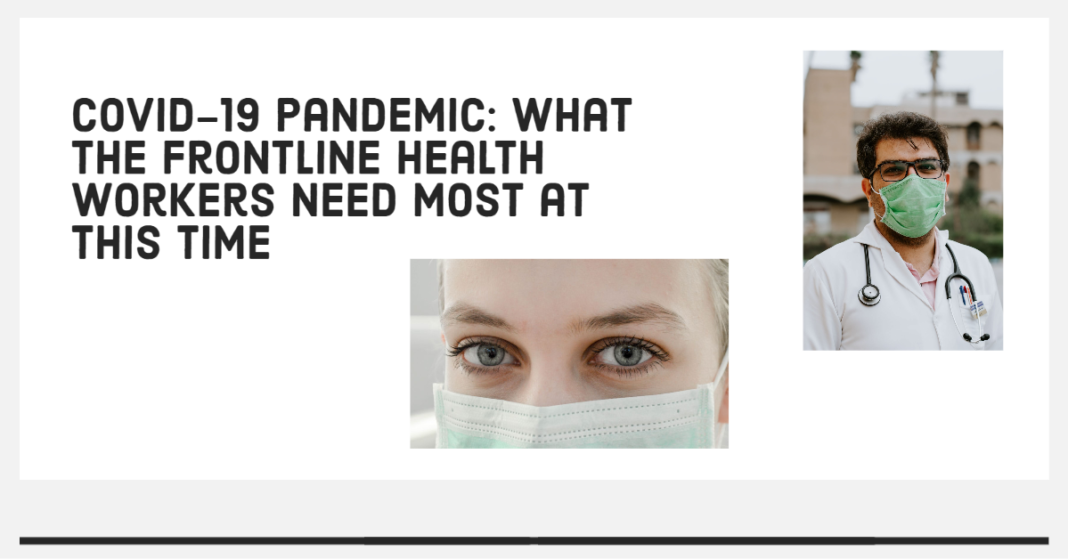COVID-19 is a respiratory illness caused by a new strain of Coronavirus called SARS-CoV-2. The first case of COVID-19 disease was reported in Wuhan, China in December 2019. But now, this infection has spread to almost all countries in the world. The number of infected people is increasing alarmingly. So is the number of people this virus is killing. Even developed countries like America, Italy, Spain, Germany are reeling under the onslaught of this pandemic. However, COVID-19 poses even a bigger challenge for developing and densely populated countries like India.
Countries across the world are using measures like social distancing and lockdown to prevent this infection’s spread. Efforts are being made to increase capacity for quarantine. New hospitals and Intensive Care Units are being set up to manage positive cases. In India, even several hotels, schools, and trains are being turned into isolation wards. All over the world, governments are trying to contain the spread of the infection and reduce fatalities.
At such a time, ensuring the safety and preparedness of Frontline Health Workers (FLHWs) is essential. FLHWs include all types of health workers like doctors, nurses, midwives, community health workers, pharmacists, and all others who provide healthcare directly to their communities.
The Rapid Evidence Synthesis team at The George Institute for Global Health, India, recently researched the issues and challenges that FLHWs would face during COVID-19 pandemic. The research team looked at global evidence from recent pandemics to understand issues and challenges for FLHWs during COVID-19.
“It will not be business as usual,” emphasizes Dr. Soumyadeep Bhaumik, the lead for this research. “Disruption in supply chain, logistics and supportive supervision would impact routine service delivery of FLHWs. It is important to plan which activities are essential and thus to be continued and which might be postponed.”
“FLHWs will experience stigmatization, isolation and social ostracization. Providing psychosocial support, non-performance-based incentives, additional transport allowance, child-care support should be planned. Awards and recognition are required for motivation. Without an active and motivated health workforce, it is difficult to tackle COVID-19,” adds Dr. Jyoti Tyagi, another member of the research team.
The key points of this RES report include:
Increased risk of COVID-19 infection:
Frontline Health Workers will face an increased risk of COVID-19. The governments and medical organizations need to provide personal protective equipment (surgical masks, gloves, hand sanitizers; N95 masks if involved in contact tracing) in sufficient quantities. FLHWs must also receive training on proper usage of these equipment in the early phase itself.
Disruption in supply chain:
Disruption in supply chain, logistics and supportive supervision might occur. This would impact routine service delivery. FLHW should be given advice on which activities are to continue and which they might postpone. They must also get proper guidelines, protocols, and training for conducting additional activities.
Risk of engaging FLHWs in additional duties:
Engaging FLHWs who continue to perform routine service delivery in additional duties like contact identification and listing is not without its risk, including the risk of COVID-19 infection.
Social stigma:
FLHWs might experience stigmatization and isolation. They might even face social ostracization. Therefore, providing psychosocial support, child-care support, non-performance-based incentives, additional transport allowance, etc. should be planned for the Frontline Health Workers. Awards and recognition should also be considered for boosting their morale.
Conclusion:
Frontline Health Workers provide health services directly to communities, including in remote and rural areas. They are the first and sometimes the only healthcare providers for people. It is essential to provide proper training and support to FLHWs so they can fulfill their duties successfully, and without risk to their physical and mental health.






